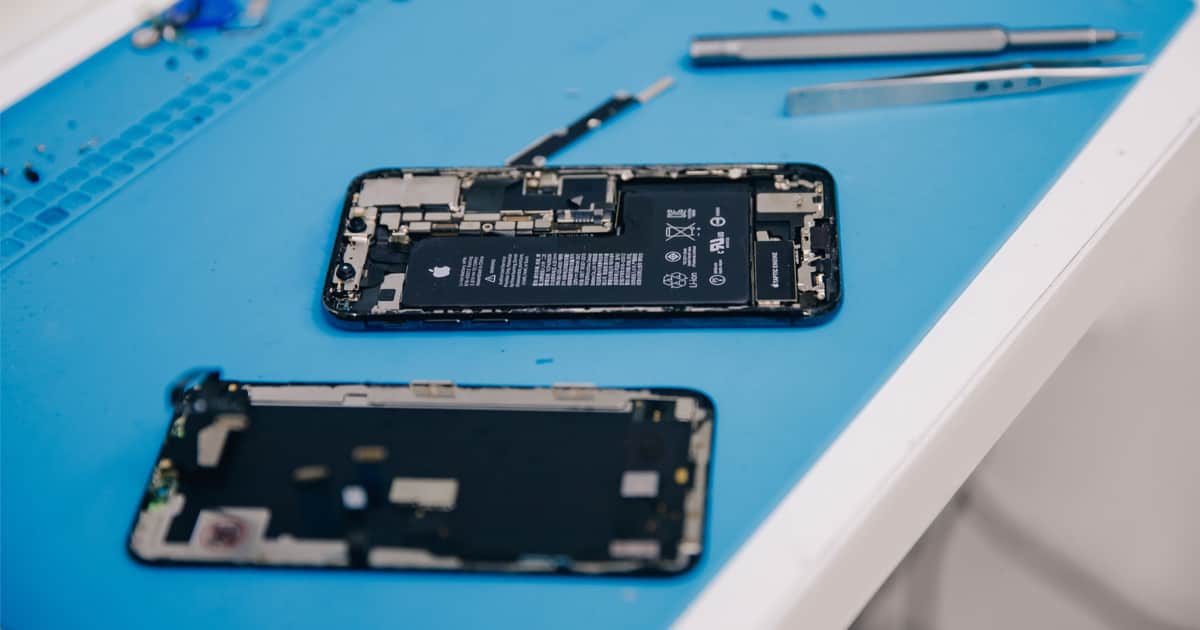The Right to Repair movement won an important victory. New York has passed legislation requiring “digital electronics manufacturers” to make tools, parts and repair instructions available to customers and independent service shops. The new right to repair law in New York should have a ripple effect far beyond the state’s borders.
New York’s Right to Repair Law
Self-repair groups like iFixit, as well as consumers, have been asking for this kind of legislation for quite some time. Requiring electronics manufacturers to make it easier and more affordable to repair their devices, iFixit has lauded the ruling as “one giant leap for repair kind.”
The passage of this bill means that repairs should become less expensive and more comprehensive: people who want to fix their own stuff can. Where before, manufacturers could push consumers to use manufacturer-authorized shops, now they’ll have to compete.
The legislation passed New York’s Senate and Assembly Friday. It still needs New York Governor Kathy Hochul’s signature, and it will be a full year before it goes into effect.
Advancing the Right to Repair Movement
There’s been considerable federal pressure lately to protect consumers’ rights to repair and refurbish their own purchased goods. While New York’s law isn’t the first such bill to pass, it is the first to apply broadly to electronics. Previously, Massachusetts passed similar legislation related to automobiles and Colorado has worked to ensure repair rights for powered wheelchairs.
New York’s law includes exceptions for home appliances, medical devices and agricultural equipment. According to the text of the law, New York’s attorney general can initiate action against any manufacturer not complying with the regulations.
While this law technically only applies to New York residents, its reach is likely to be far broader. Since electronics manufacturers will have to provide repair manuals for consumers, those documents are bound to spread around the world. Furthermore, repair parts might technically only be available to New Yorkers. However, there’s little to stop them from selling those components across state lines.
Apple’s Self-Service Repair Program
Apple has, historically, been vocal in opposing right to repair requirements. The Cupertino-based tech giant is well known for taking steps to limit iPhone repairs. If you don’t have Apple’s seal of approval, repairing Apple devices is quite challenging.
That being said, Cupertino seems to be getting with the program, in a way. Its recently launched Self-Service Repair Program allows consumers to purchase parts to service their own devices. Apple even began renting out the tools it says are best for effecting such repairs.
That program has a lot of room for improvement, though. The tool kit for many iPhone repairs weighs in at almost 80 pounds, and you have to allow a temporary hold on your credit or debit card of up to $1,200 or more until you return the rented tools.
New York’s passage of its right to repair law is a step in a much better direction. It sets a precedent for other states to follow, not to mention the rest of the world. New York Assemblymember Patricia Fahy said the law “ends what is a monopoly on the repair market by corporate actors and incentivizes competition within the industry.”
The new law might not make Apple’s Self-Service Repair Program better, but it does lay the groundwork for better options in the future.

iFixit is not a neutral party in this discussion as they are poised to benefit from people purchasing their products and tools for repair purposes. My guess is a-lot of people do not have the patience, knowledge and dexterity to do most if not all of these repairs. It takes a-lot of practice, sacrificial devices and patience and good eye site to be able to perform self repair on most of todays electronic devices.